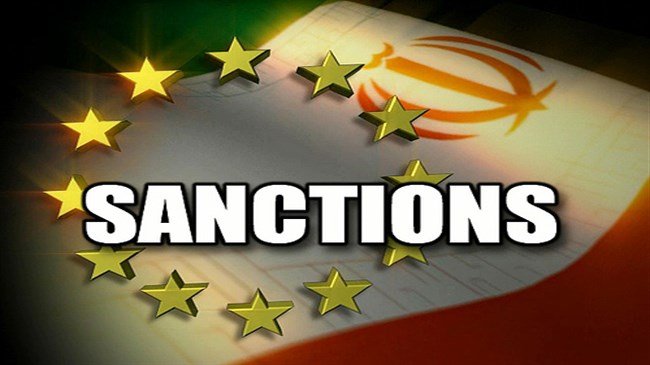 Expecting an end to sanctions, Iranian manufacturers are preparing to open for business with the West, according to�a report�Friday in�The New York Times. The article highlights Iran�s national car manufacturer, Iran Khodro, in which an impressive number of Western companies are reportedly showing interest.
Expecting an end to sanctions, Iranian manufacturers are preparing to open for business with the West, according to�a report�Friday in�The New York Times. The article highlights Iran�s national car manufacturer, Iran Khodro, in which an impressive number of Western companies are reportedly showing interest.Even though sanctions have cut the carmaker�s production by 40 percent compared with its peak year of 2011, when it made 1.6 million, hopes are soaring. �We are planning our future irrespective of any deadline,� said Hashem Yekehzare, the president of Iran Khodro, while making his way through a swarm of journalists.
For over a decade his company had partnered with the French automaker PSA Peugeot Citro�n under a deal worth more than $2.5 billion a year, but the French were forced to pull out in 2012 because of the American-led sanctions.
They are eager to return, but Mr. Yekehzare said the company now had a bevy of suitors to choose from. �General Motors, Ford, all big American carmakers are showing interest in cooperating with us,� he said. �Our future is bright.�
Iranian companies are not the only ones anticipating sanctions relief. �The flow of foreign delegations to Iran continues at a steady pace, bringing eager businessmen who in conferences laud Iran�s unique geographical position, its stability and its largely untapped market of middle-class consumers.�
A�European-Iranian business forum, which was�held in London�in October, �call[ed] into question the White House�s repeated insistence that sanctions against Iran are holding despite the financial relief granted by the Joint Plan of Action (JPA).� The�ongoing increase�in business contacts with Iran raises �concerns that the Iranian economy is steadily recovering amid a de-escalation in sanctions pressure on the Islamic republic.�
Aside from the erosion of economic sanctions due to the nuclear negotiations, Iran has actively circumvented other�sanctions that were designed to deter Tehran from developing a nuclear bomb. Benjamin Weinthal, a research fellow at the Foundation for Defense of Democracies,�reported�last week that in Germany, the vast majority of customs violators are involved with Iran.
In an overlooked article in the German media last month, the president of that nation�s Federal Customs Service�s investigative unit (ZKA) Norbert Drude said,�We continue to observe [Iranian] criminal nuclear proliferation activity.� In 2012 and 2013, more than two-thirds of the service�s 264 investigations concerned the Islamic Republic, Drude said, adding that he anticipates that the numbers will be similar for 2014.
The ZKA noted that Iran�s deceptive business practices allow it to buy sanctioned merchandise.
Even as Iran anticipates the end of sanctions, it continues violating those still in effect. In April, Spain�arrested four men�for exporting dual use technology to Iran.
In�Iran is *Really* Good at Evading Sanctions, published in the September 2013 issue of The Tower Magazine, Emanuele Ottolenghi illustrated how one state-tied�Iranian firm, the Iran Foreign Investment Company, has evaded sanctions.
Despite being a regime-owned company, IFIC Holding and its subsidiary IHAG Trading are incorporated in Germany. This means that unless German authorities can show proof of wrongdoing specific to its German subsidiaries, IFIC can continue to operate, invest, buy, and sell on German soil. IFIC�s Thyssenkrupp shares generate millions of Euros in dividends every year, which the company can then spend or reinvest as it pleases.
Sanctions experts routinely point out that Iran cannot repatriate most of these funds, and see this as proof that sanctions have been successful. While there is no doubt that such restrictions are a problem for the Islamic Republic and have contributed to its economic distress, the regime has devised ways of moving its revenue abroad and, in the process, conducting business and procuring technology without having to rely on its own banking system.
IFIC company papers show how this can be done. In 2010, IFIC Holding financed a Dubai-based company called South Isfahan Power Plant FZCO. The company was established for the sole purpose of buying and re-exporting components for a power plant in Iran, which was established with the help of IFIC Holding and World Bank funds in 2004.
Sanctions have targeted Iranian involvement in the European Union energy sector since 2010, so Iran can no longer buy parts directly from European manufacturers like IPM. But a Dubai-chartered company can; especially if, as IFIC�s annual financial statements show, its funding comes from an offshore banking unit incorporated in Bahrain. That banking unit, however, is owned by Iran�s Bank Saderat. In short, funds that technically come from Germany and Bahrain to finance an import-export operation in Dubai are, in fact, ultimately used to buy merchandise destined for Iran.
By The Tower
The Iran Project is not responsible for the content of quoted articles.










